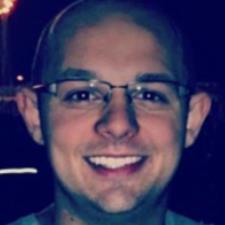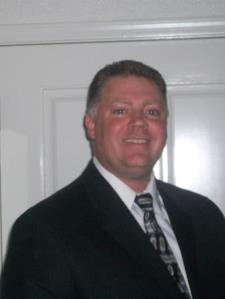 Post Classifieds
Post Classifieds
Negating the Numbers: Promoting Eating-Disorder Awareness

Photo by: Sydeny Meyer
“This nutritional information is based on a 2,500 calorie diet.”
“You should get at least 30 minutes of exercise in every day.”
“If you have a BMI above 25, you’re unhealthy.”
Numbers dictate everything.
In this society, we are surrounded with propaganda that leads us to a certain understanding of the word “healthy.” These cultural norms require us to assert moral implications on appearances and behaviors, giving us the right to judge what a person “should” be doing to their body.
For instance, a person orders a salad at a restaurant. Upon the arrival of the dish, friends look uneasily at their own meals, tugging at their shirts and feeling as though they made the wrong choice.
“Ooh, you’re so good,” they say. “I wish I could eat like you.” The salad-eater is put on a platform, believed to be somehow “better” based solely on his or her choice of meal.
When moral values are placed on food, rules are established, restrictions are set in place and self-denial abounds, resulting an inordinate amount of thought, value and anxiety placed upon one’s consumption. This behavior is classified as an eating disorder.
“Eating disorders are defined by persistent disturbance of eating-related behaviors that significantly impairs physical health and/or psychological reasoning,” says Kelsey Foss, OU counselor.
According to the National Eating Disorder Association, though no two eating disorders are the same, they are typically marked with patterns and behaviors including discomfort in social-eating environments, preoccupation with numeric values associated with food and consistent negative self-talk, among other things.
And how does this all start?
Well, for me, it started with the earth-shattering move to Missouri State. I grew up in a small town, was well-known within my community and had established my identity through athletics and academic success.
When you are defined by peoples’ expectations, it becomes difficult to relax, difficult to become the person you truly want to be. I was ready to move to a bigger place, a place where no one would know me, no one would expect me to achieve such high rates of success. I didn’t realize the only expectations I was trying to live up to were my own.
Perfection is an impossible pursuit, but media portrayal within society does not promote such an understanding. Self-improvement is a requirement — one must continually be looking to “fix” something about themselves, whether it be their body, eating habits or attitude. Examples of this can be seen in commercials explaining the benefits of diet programs (“A better, thinner you!”), magazine articles promoting the newest eating fad (“Detox your body, detox your life!”), and department stores that display only perfectly proportioned mannequins.
Around such topics as diet and exercise, enough is never enough.
As I attempted to become this “perfect” human being, I read a lot of articles online, trying to figure out what the “right” way to live was. These articles carried an undertone of weight stigma and diet culture, which I didn’t realize at the time. Headlines like “Do these 6 things in the morning for a better life,” and “Eat this, not that” influenced my perception of what I “should” be doing to live the best life possible.
Unfortunately, these diet messages are unsustainable for any significant period of time. To implement the content of the articles, one must basically denounce their humanity to become as proficient in self-denial as the article says they should be.
“Sometimes people think, ‘I have to go on a diet,’” says Brenda Pfizenmaier, registered dietician at Ransom Memorial Hospital. “I’ve always said, if you do go on a diet, you’ll do exactly what the word says, which is die.”
In college, you’re not given strict rules or guidelines, so I decided to create my own. When I couldn’t decide how to stay active and athletic, I would spend hours working myself to death in the gym, because that’s what the strongest, healthiest people do, right? When I couldn’t decide what to eat, I would look at the little calorie cards posted in the cafeteria, because the lower the calories, the better the decision, right? When I was craving a snack or wishing for seconds, I would just drink more water, because my brain was just telling me that I wanted more to eat, I didn’t actually need it, right?
Wrong.
I couldn’t understand why I wasn’t turning into the healthiest, happiest human around. I was doing exactly what all the articles said to do. I was over-exercising, eating the lowest caloric amount that I could, denying myself all the foods labeled “bad” — why was I miserable?
Eating disorders are often punctuated with various emotional and behavioral signs, including an individual becoming “preoccupied with weight, food, calories, carbohydrates, fat grams and dieting,” and “developing food rituals,” according to Foss. An individual suffering from an eating disorder may “maintain excessive, rigid exercise regimen — despite weather, fatigue, illness or injury — due to the need to burn off calories.”
The numbers were the driving force, the clock was my master, and I continued to suffer.
We exist in a number-oriented society. People are obsessed about appearance, about how they look to the public. I was trying to live “right,” to be “healthy,” not realizing that the definition of “healthy” that exists within diet culture is not conducive to a survivable life.
“It doesn’t have to be exact. Moderation and balance is the key,” Pfizenmaier says. She stresses that nutrition isn’t a one-size-fits-all solution — eating plans and habits are highly individual and vary based on situation and context.
This experience has been the hardest thing I’ve ever endured — a fight for life that existed solely within the constraint of my own mind, which is the most dangerous kind. The lessons I’ve learned from it, though, are invaluable. Because now that I’m awake, I’m able to realize just how little the numbers matter.
“This isn’t a diet. This is a food plan for the rest of your life. There’s no good, there’s no bad,” Pfizenmaier says.
Who decides these standards? Who tells you that you are only allowed to have a certain number of calories every day? Who gets to tell you what a “better” appearance looks like? What dictates the amount of agony you’re willing to put yourself through to achieve ideals that aren’t only unattainable, but unappealing?
We’re told again and again what “healthy” means, but how do these “experts” really know? How can you be judged on a sliding scale, a measurement of worth wrapped with moral value and tied with expectation?
We are born with the ability to listen to ourselves. If no foods were restricted, if body shape didn’t hold moral value, if people were allowed to be whatever size they wanted, free to take care of themselves as they pleased, what would the world look like? Would those calorie cards still be on the glass in the dining hall? Would we still be guided by expectation, governed by impossible standards and the fear of letting ourselves listen to what our bodies are saying?
Eating disorders are real and rampant. These misconceptions are misguiding and terrifying, and the scariest thing is, the behaviors associated with eating disorders are praised. They are becoming normalized. People are complimented for killing themselves for this relentless pursuit of perfection. Diet culture abounds, preaching the numbers and using value statements, leaving people feeling terrible about letting themselves be who they are.
All foods fit, trust me. People are not bad or good based on what they eat, on their exercise habits or on their physical appearance. Don’t place value on invisible concepts. Don’t judge morality on numerical values. Love yourself, listen to yourself.
Because life is more than the numbers.
If you or someone you love is struggling with an eating disorder, do not hesitate to contact Kelsey Foss at 785-248-2582 or email her at Kelsey.foss@ottawa.edu. The counseling center on campus is located in the Ward Science building on the first floor, room 105. Their hours are Monday-Friday, 9 a.m.-4 p.m. Walk-ins are also welcome, as schedules allow, or you can schedule an appointment via phone or email.
If you would like more information about intuitive eating or the health at every size movement, you can visit www.nationaleatingdisorders.org/what-health-at-every-size, or read the book "Intuitive Eating" by Evelyn Tribole.
Get Top Stories Delivered Weekly
More oucampus News Articles
- THE CAMPUS HAS A NEW WEBSITE
- OU Student experiences plane scare on way back to Ottawa
- Free Pizza Time reviews
- Holiday shopping starts now
Recent oucampus News Articles
Discuss This Article
MOST POPULAR OUCAMPUS

A Safe Holiday Season By Kylee Weber

OU Student experiences plane scare on way back to Ottawa By Brynden Grow

POTW - Logan Smoot By Brynden Grow
GET TOP STORIES DELIVERED WEEKLY
FOLLOW OUR NEWSPAPER
LATEST OUCAMPUS NEWS
RECENT OUCAMPUS CLASSIFIEDS
OUTSIDE THE LINES
- A Story To Sing About
- The Gap in Gum Care: Why Caring For Your Teeth’s F...
- Top Tips for Signature Scents and Better-Smelling Laundry
- A Dog Trainer’s Top Tips to Support Pets Through Life S...
- Clear the Air of Indoor Pollutants This Spring
- Stroke & Dementia in Black Men: Tips for Staying Healthy...
- Hispanics and African Americans at Higher Risk for Eye...
- African Americans at Higher Risk for Eye Disease
- Infinity Kings: Final Book In A Favorite Fantasy Series
- What You Need To Know About Keratoconus and the iLink...
FROM AROUND THE WEB
- Don’t Let Diabetes Shortchange Your Golden Years
- No Child is Forgotten By Marine Toys for Tots
- Sweeten Your Springtime Salads With Healthy Chilean Grapes
- Young Author Translates 4,000-Year-Old Text to Reveal...
- Keeping Cool and Energy-efficient Amid America’s “...
- Addressing Sarcopenia with a Healthy Diet
- Subway’s New Wraps Elevate Eating on the Go
- Family Teacher Conference Topics Beyond Academics
- Youth Take Down Tobacco
- BookTrib’s Bites: Four Reads to Kickoff Spring
COLLEGE PRESS RELEASES
- Shoff Promotions Comic Book & Sports Card Show
- Semiconductor Research Corp unveils 2024 Research Call, $13.8M Funding
- Charles River Associates Opens Second Scholarship Cycle, Expands to the UK
- BLUMHOUSE AND AMC THEATRES LAUNCH FIRST-EVER HALFWAY TO HALLOWEEN FILM FESTIVAL
- THE GEN Z IMPERATIVE: LISTEN TO FEELINGS AND GIVE GEN Z A VOICE












